John Hurrell – 16 April, 2009
Comics are one of those cultural phenomena it is hard to imagine any artist not being passionate about. They are palpable, colourful sources of small but visually intense graphics that can be poured over for hours. Easy to transport, their blending of text with graphic form allows the vividness of precise detail to be coupled with a compressed narrative that can be unravelled at will.
Comics are one of those cultural phenomena it is hard to imagine any artist not being passionate about. They are palpable, colourful sources of small but visually intense graphics that can be poured over for hours. Easy to transport, their blending of text with graphic form allows the vividness of precise detail to be coupled with a compressed narrative that can be unravelled at will.
Several ‘gallery’ artists here have long histories of making paintings that reference what are called ‘comics’ (before the mid-sixties) or ‘comix’ (after that, and perhaps ‘underground’) - artists such as Denys Watkins, Dick Frizzell, Mark Braunias and Robert McLeod.
However the real surprise of this exhibition is the inclusion of four comic book creators, authors who also draw. The preparatory work for their creations is displayed on the gallery walls, often larger than the final published versions, not trimmed or bound, and often rougher with hand painted or inked surfaces.
In New Zealand it is unusual to see comic page work in galleries up for sale. In places like France, where ‘band dessinée’ has serious status as an art form, shops where you can buy publications to read often also have statues of comic characters for sale in limited editions, and framed, purchasable artists’ working drawings up on the walls.
With these works by Dylan Horrocks, Tim Bollinger, Barry Linton and the Sheehan Brothers, nothing is under glass. The pagework is simply just pinned up on white mdf. It looks quite stark, especially as most of it is black ink on white paper or ivory board. With the two artists who use coloured pencil or watercolour, Horrocks and Linton, the chroma is gorgeously delicate.
And of course it is a different experience standing in a gallery reading these on a wall. Not at all like having them at home bound and in a proper sequence - with you sitting in a chair with your feet up, perhaps with a glass of whisky or dubious cigarette resting nearby, and you closely following the story.
While both virtuoso graphic artists with amazing drawing and conceptualising skills, Horrocks and Linton provide such sensual treats with their colour that they tend to upstage the other artists: Horrocks with one of his ‘Milo’s Week’ strips from the Listener, Linton with an amazing assortment of material looking at the history of Central America that he actually only has one copy of - it has not been published.
However even without colour Darren and Kelly Sheehan’s Go Gorillas pages pack an amazing graphic wallop, and seem to allude to British ‘bad boy’ fiction writers like Martin Amis and Will Self. Their vital Signs of Life sequence alongside them seems to reference Auckland Art Gallery, with humorous nods to Giovanni Intra, Francis Upritchard and Judy Darragh amongst a crowd of party-goers.
Tim Bollinger will be well known to readers of White Fungus. His Noa (h) story is not as impressive graphically as the others, but perhaps more entertaining in its humour. His images of a Thurberesque face of God peeking through the clouds while conversing with Noah are some of the many reasons why this show is worth catching.
- John Hurrell
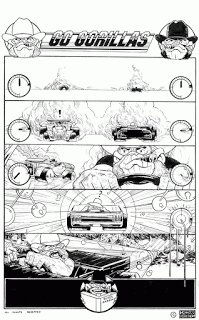


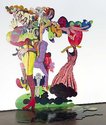
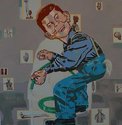
 Two Rooms presents a program of residencies and projects
Two Rooms presents a program of residencies and projects Advertising in this column
Advertising in this column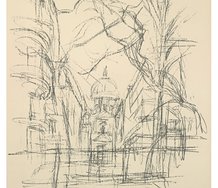
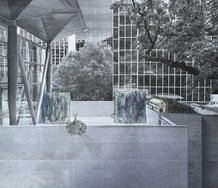
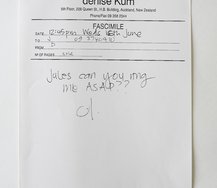
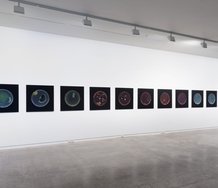
This Discussion has 0 comments.
Comment
Participate
Register to Participate.
Sign in
Sign in to an existing account.